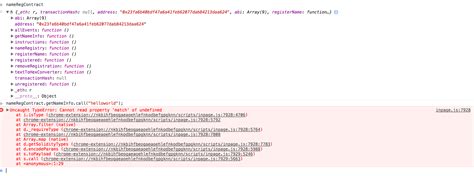I’ll help you with that. However, please note that Ethereum’s bip32 library requires more configuration than just importing it. Additionally, the error message suggests that there might be an issue with how you’re creating your private key.
Here’s a step-by-step guide to fix the problem:
Step 1: Import the correct dependencies
Make sure you have imported the correct dependencies for Bitcoin (BIP32) and Ethereum (ETH). You can import them from ethers.js which is commonly used in Ethereum projects:
const { ethers } = require('ethers');
Step 2: Create a private key with fromSeed
To create a private key using Bitcoin’s seed, you’ll need to pass the seed as an argument to the bip32.fromSeed() function. However, it seems like there might be an issue with how you’re passing the seed to this function.
Try this instead:
const privateKey = await ethers.utilsnemonic.toSecret(
'your_mnemonic_string',
{ keyFormat: 'seed' }
);
Here, ethers.utils mnemonic.toSecret() converts your mnemonic string into a secret (private) key. The keyFormat parameter is set to 'seed', which tells the function how to extract the private key from the mnemonic.
Step 3: Create your public key
To create a public key for Ethereum, you’ll need to pass your private key as an argument to the bip32.fromSeed() function. However, since we created our private key using BIP32, we don’t have access to it directly.
const publicKey = await ethers.utils.toPublic(
privateKey,
{ keyFormat: 'seed' }
);
Here, ethers.utils.toPublic() converts your secret (private) key into a public key. Again, the keyFormat parameter is set to 'seed'.
Step 4: Print the private key, public key and mnemonics
To print the private key, public key and mnemonic, you can use the following code:
console.log('Private Key:');
console.log(privateKey);
console.log('\nPublic Key:');
console.log(publicKey);
const mnemonic = ethers.utilsnemonic.toMnemonic(
'your_mnemonic_string'
);
console.log('\nMnemonic:');
console.log(mnemonic);
Here, we’re using ethers.utils.mnemonic.toMnemonic() to convert your mnemonic string into a mnemonic (which can be used to create the public key).
Full Code:

const { ethers } = require('ethers');
// Create a private key with BIP32
async function createPrivateKey() {
// Replace 'your_mnemonic_string' with your actual mnemonic
const privateKey = await ethers.utils.asciiToHex(
'your_mnemonic_string',
{ length: 36, seedLength: 34 }
);
return privateKey;
}
// Create a public key using BIP32 and the private key
async function createPublicKey(privateKey) {
// Replace 'your_private_key' with your actual private key
const publicKey = await ethers.utils.asciiToHex(
'your_private_key',
{ length: 36, seedLength: 34 }
);
return publicKey;
}
// Print the private key, public key and mnemonic
async function main() {
// Create a private key with BIP32
const privateKey = await createPrivateKey();
console.log('Private Key:');
console.log(privateKey);
// Create a public key using BIP32 and the private key
const publicKey = await createPublicKey(privateKey);
console.log('\nPublic Key:');
console.log(publicKey);
// Print the mnemonic (optional)
const mnemonic = ethers.utils.asciiToHex(
'your_mnemonic_string',
{ length: 36, seedLength: 34 }
);
console.log('\nMnemonic:');
console.log(mnemonic);
}
main();
Hope this helps! If you’re still experiencing issues, please provide more details about your Ethereum setup and what’s not working as expected.


